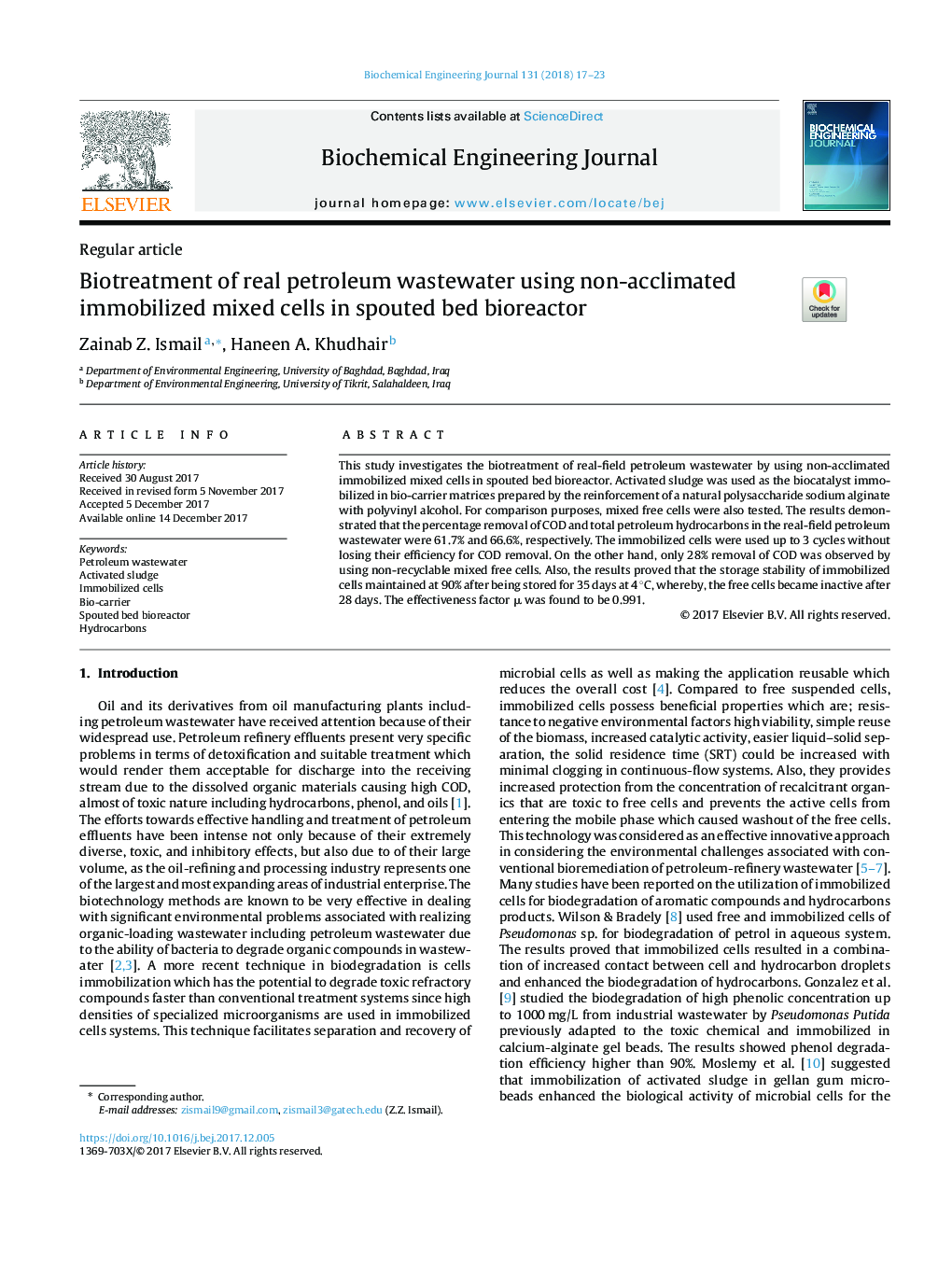| Article ID | Journal | Published Year | Pages | File Type |
|---|---|---|---|---|
| 6482281 | Biochemical Engineering Journal | 2018 | 7 Pages |
Abstract
This study investigates the biotreatment of real-field petroleum wastewater by using non-acclimated immobilized mixed cells in spouted bed bioreactor. Activated sludge was used as the biocatalyst immobilized in bio-carrier matrices prepared by the reinforcement of a natural polysaccharide sodium alginate with polyvinyl alcohol. For comparison purposes, mixed free cells were also tested. The results demonstrated that the percentage removal of COD and total petroleum hydrocarbons in the real-field petroleum wastewater were 61.7% and 66.6%, respectively. The immobilized cells were used up to 3 cycles without losing their efficiency for COD removal. On the other hand, only 28% removal of COD was observed by using non-recyclable mixed free cells. Also, the results proved that the storage stability of immobilized cells maintained at 90% after being stored for 35â¯days at 4â¯Â°C, whereby, the free cells became inactive after 28â¯days. The effectiveness factor μ was found to be 0.991.
Related Topics
Physical Sciences and Engineering
Chemical Engineering
Bioengineering
Authors
Zainab Z. Ismail, Haneen A. Khudhair,
